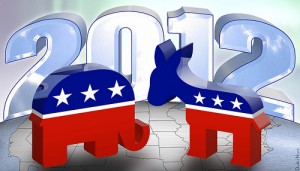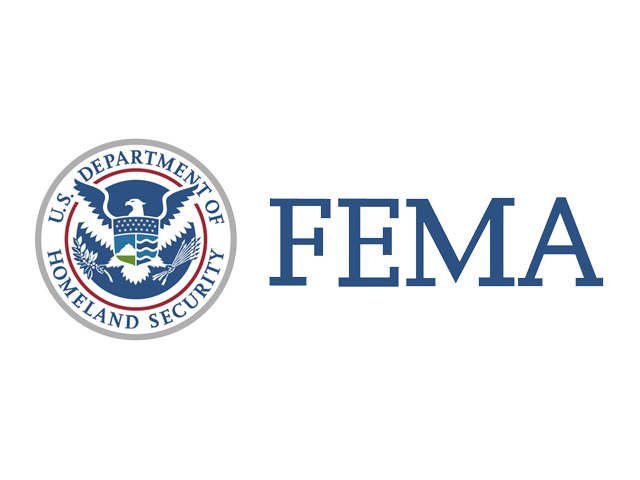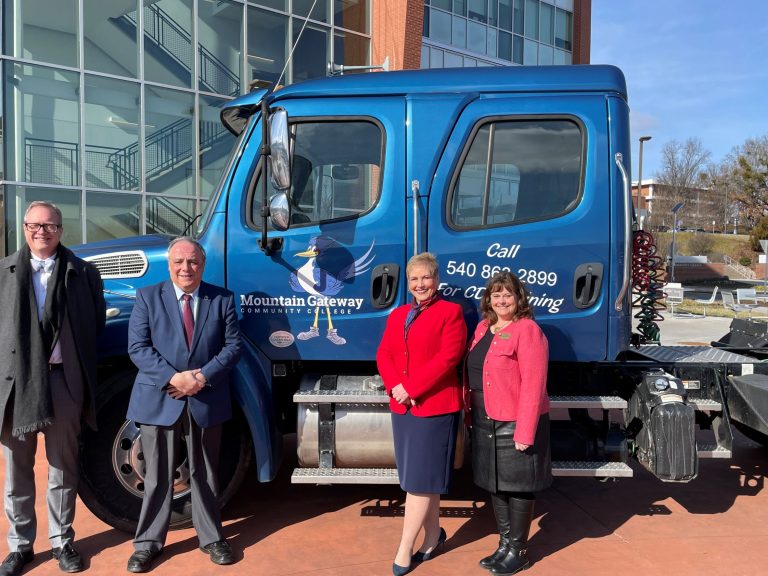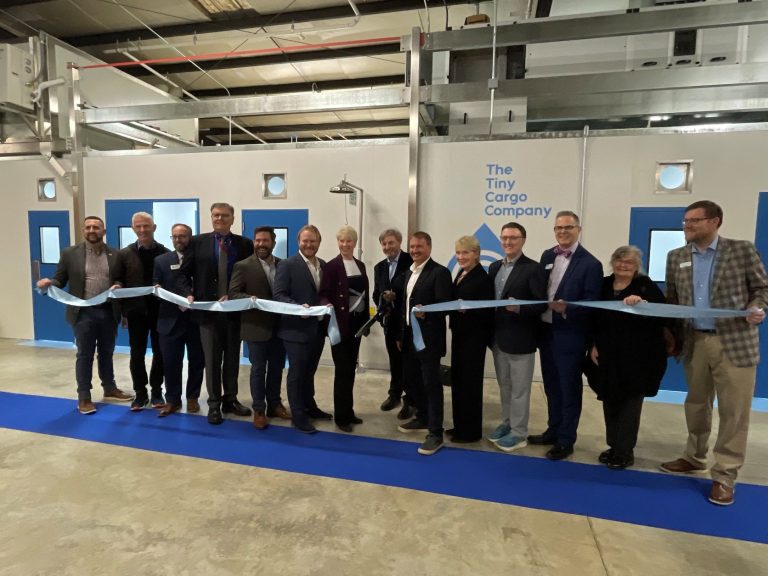
A new statewide poll shows Republican Mitt Romney opening a six point lead in Virginia — and George Allen maintaining his lead over Tim Kaine. The Roanoke College Poll shows Romney leading President Obama 46% to 40%, a change from the college’s February poll which showed the two in a statistical tie. But the same poll finds more Obama supporters feel more enthusiastic about their candidate than those expressing support for Romney.
On the Senate side, Republican George Allen maintains his 8% lead over Democrat Tim Kaine in the likely November matchup, 44% to 36%.
Click here for the full questionnaire and frequency of responses.
(Continue reading for the full Roanoke College Institute for Policy and Opinion Research news release.
THE ROANOKE COLLEGE POLL
Conducted by The Institute for Policy and Opinion Research
Romney opens lead over Obama but faces enthusiasm gap;
Kaine trails Allen in potential VA Senate race
Likely Republican nominee Mitt Romney has opened a six-point lead (46%-40%) over President Barack Obama in Virginia, according to The Roanoke College Poll. The two were statistically tied in the College’s February poll. Republican George Allen maintains an 8-point lead (44%-36%) on Democrat Tim Kaine in the likely November matchup for the U.S. Senate seat from Virginia. The margin is unchanged from last month. The Roanoke College Poll interviewed 603 Virginia residents between March 24 and April 5 and has a margin of error of +4%. Screening for registered voters (N=537) reduces Allen’s lead to seven points (46%-39%) and Romney’s lead to five points (46%-41%).
Part two of this poll, which will examine the perceptions of religious faith, the Presidency, Barack Obama, Mitt Romney, and Mormonism from the perspectives of Evangelical Christians and the general public, will be released in the next several days.
Romney faces enthusiasm gap
Although Mitt Romney leads Barack Obama, he faces a clear “enthusiasm gap” as compared to the incumbent, according to poll results. Romney supporters are less likely to say they are very certain they will vote for him (72% vs. 81% among Obama voters), are only half as likely to say they are very enthusiastic about their vote (31% vs. 62%), and are three times as likely to say they are not enthusiastic (22% vs. 7%). Not surprisingly, Obama supporters are more likely to say they would contribute money to the campaign (49% vs. 20% among Romney voters), volunteer for the campaign (43% vs. 20%), informally talk to other people about voting for the candidate (58% vs. 45%), or put up a yard sign or attach a bumper sticker (50% vs. 30%). About one-third (36%) of those who are not certain they will vote for their preferred candidate say it is possible they won’t vote. More than half of those who say they may not vote (56%) say they would be more likely to vote if the Republicans nominated someone other than Romney.
Favorable/unfavorable—Mixed News for Obama
Election prognosticators often cite the favorable/unfavorable ratings of candidates as potential harbingers of the election. President Obama’s favorable ratings are poor (41% favorable; 49% unfavorable), but they top those of Mitt Romney (27% favorable; 43% unfavorable). However, Obama’s relatively high unfavorable rating is not a good sign for his candidacy. Governor McDonnell tops the list of elected officials and candidates with a 46 percent favorable rating. Tim Kaine and George Allen are statistically tied in this category (Kaine: 40% favorable/32% unfavorable; Allen: 38% favorable/28% unfavorable).
Poll results indicate that Virginia residents think that Barack Obama understands them better than Mitt Romney does. Just over half (51%) think Obama understands the needs of people like them very well or fairly well, while only 40 percent say the same about Mitt Romney. Virginians claim to have given the Presidential election a lot of thought (64%), and even more (67%) say their interest in the campaign is increasing over time.
Allen/Kaine
Allen’s lead over Kaine is the same as last month. Allen leads among political Independents (42%-35%), but he trails Kaine among ideological moderates (46%-35%). Allen benefits from the greater percentage of self-identified Conservatives in Virginia as compared to Liberals. In fact, Kaine does slightly better at getting support from Liberals (78%) than Allen does among Conservatives (71%). Each gets a strong majority of their partisan brethren, with Allen doing insignificantly better among Republicans (80%) than Kaine fares among Democrats (76%). Kaine holds relatively narrow leads in Northern Virginia and Tidewater, while Allen has a larger lead in the other regions of the state.
There is also a gender gap with the potential candidates tied among women (39%-39%), but Allen leads among men (50%-33%). Allen has a commanding lead among Whites (52%-29%), while he barely registers among African-Americans (Kaine leads 66%-9%). Kaine leads among younger respondents, while Allen does better among older residents. Interestingly, Kaine leads among those with the least and most education (less than high school and post-graduate degree) and those in the lowest and highest income groups (less than $20,000 and more than $100,000). Allen leads among all groups between those extremes.
Views of Virginia and the U.S./Important Issues/Elected officials’ approval ratings
Virginians are more pessimistic about the direction of the country and the Commonwealth compared to February’s Roanoke College Poll (71% think the United States is on the wrong track while 23% think the country is headed in the right direction). Predictions for next year are slightly better with 38 percent saying they expect the national economy to improve, while 26 percent think conditions will be worse. Perceptions of the Commonwealth are more optimistic than the country but have declined in a month (45% think Virginia is headed on the wrong direction; 41% think it is on the right track).
Virginians remain focused on the economy. When asked the most important problem facing the country today, the top four issues were the economy in general (34%), unemployment (19%), the budget deficit (7%), and gas prices (6%). All other issues combined comprised only 34% of responses, with none exceeding 5%. Virginians disapprove of the individual mandate portion of the Patient Protection and Affordable Health Care Act by a 57 percent to 32 percent margin. On a related issue, those who disagree with the Tea Party movement now outnumber supporters by six points (46%-40%), a margin virtually the same as February’s Roanoke College Poll.
President Obama’s and Governor McDonnell’s approval ratings are down slightly, though statistically unchanged (38% in March vs. 42% in February for Obama, and 56% in March vs. 60% in February for McDonnell). Approval of Congress has dropped into single-digits at 9%, down 2% in a month.
Analysis
“While Mitt Romney fares well in the top-line numbers of this poll, looking beneath the surface suggests that his position is somewhat precarious,” said Harry Wilson, director of the Institute for Policy and Opinion Research. “The commitment of his supporters lags significantly behind the commitment of President Obama’s supporters in several areas. While his lead over Obama has widened in a month, his favorable/unfavorable numbers and the fact that Virginians think Obama better understands their needs do not bode well for the likely Republican nominee.”
“The Allen/Kaine race has not changed since the last Roanoke College Poll. It is also interesting that Kaine is actually winning among Virginians with the highest income.”
“The results of this poll indicate a very high level of dissatisfaction on the part of Virginians. Approval of Obama, McDonnell and Congress are all down slightly, and perceptions of the state and the country have declined as well. Both Presidential candidates have higher unfavorable than favorable ratings. Virginians are a disgruntled group right now.”
Methodology
Interviewing for The Roanoke College Poll was conducted by The Institute for Policy and Opinion Research at Roanoke College in Salem, Va. between March 26 and April 5, 2012. A total of 603 Virginia residents were interviewed. The sample of land lines and cell phones was prepared by Survey Sampling Inc. of Fairfield, Conn. and was created so that all cell phone and residential telephone numbers, including unlisted numbers, had a known chance of inclusion. Cell phones constituted 21 percent of the completed interviews.
Questions answered by the entire sample of 603 residents are subject to a sampling error of plus or minus approximately 4 percent at the 95 percent level of confidence. This means that in 95 out of 100 samples like the one used here, the results obtained should be no more than 4 percentage points above or below the figure that would be obtained by interviewing all Virginia residents who have a home telephone or a cell phone. Where the results of subgroups are reported, the sampling error is higher. For example, the margin of error when screening for registered voters (N=537) is + 4.2%. Results were statistically weighted for gender, race, and age.



